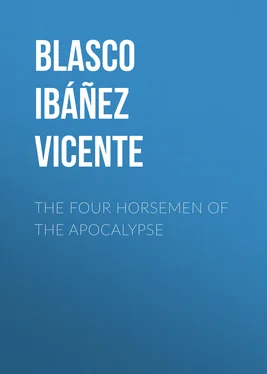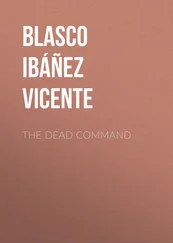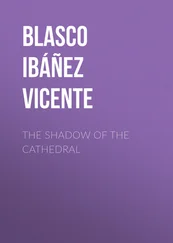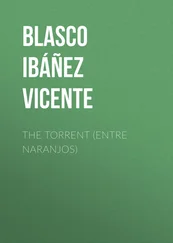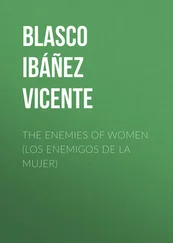Vicente Blasco Ibáñez - The Four Horsemen of the Apocalypse
Здесь есть возможность читать онлайн «Vicente Blasco Ibáñez - The Four Horsemen of the Apocalypse» — ознакомительный отрывок электронной книги совершенно бесплатно, а после прочтения отрывка купить полную версию. В некоторых случаях можно слушать аудио, скачать через торрент в формате fb2 и присутствует краткое содержание. Жанр: foreign_prose, foreign_antique, на английском языке. Описание произведения, (предисловие) а так же отзывы посетителей доступны на портале библиотеки ЛибКат.
- Название:The Four Horsemen of the Apocalypse
- Автор:
- Жанр:
- Год:неизвестен
- ISBN:нет данных
- Рейтинг книги:3 / 5. Голосов: 1
-
Избранное:Добавить в избранное
- Отзывы:
-
Ваша оценка:
- 60
- 1
- 2
- 3
- 4
- 5
The Four Horsemen of the Apocalypse: краткое содержание, описание и аннотация
Предлагаем к чтению аннотацию, описание, краткое содержание или предисловие (зависит от того, что написал сам автор книги «The Four Horsemen of the Apocalypse»). Если вы не нашли необходимую информацию о книге — напишите в комментариях, мы постараемся отыскать её.
The Four Horsemen of the Apocalypse — читать онлайн ознакомительный отрывок
Ниже представлен текст книги, разбитый по страницам. Система сохранения места последней прочитанной страницы, позволяет с удобством читать онлайн бесплатно книгу «The Four Horsemen of the Apocalypse», без необходимости каждый раз заново искать на чём Вы остановились. Поставьте закладку, и сможете в любой момент перейти на страницу, на которой закончили чтение.
Интервал:
Закладка:
In exchange for his lessons, Argensola received, much the same treatment as did the Greek slaves who taught rhetoric to the young patricians of decadent Rome. In the midst of a dissertation, his lord and friend would interrupt him with—“Get my dress suit ready. I am invited out this evening.”
At other times, when the instructor was luxuriating in bodily comfort, with a book in one hand near the roaring stove, seeing through the windows the gray and rainy afternoon, his disciple would suddenly appear saying, “Quick, get out! . . . There’s a woman coming!”
And Argensola, like a dog who gets up and shakes himself, would disappear to continue his reading in some miserable little coffee house in the neighborhood.
In his official capacity, this widely gifted man often descended from the peaks of intellectuality to the vulgarities of everyday life. He was the steward of the lord of the manor, the intermediary between the pocketbook and those who appeared bill in hand. “Money!” he would say laconically at the end of the month, and Desnoyers would break out into complaints and curses. Where on earth was he to get it, he would like to know. His father was as regular as a machine, and would never allow the slightest advance upon the following month. He had to submit to a rule of misery. Three thousand francs a month!—what could any decent person do with that? . . . He was even trying to cut THAT down, to tighten the band, interfering in the running of his house, so that Dona Luisa could not make presents to her son. In vain he had appealed to the various usurers of Paris, telling them of his property beyond the ocean. These gentlemen had the youth of their own country in the hollow of their hand and were not obliged to risk their capital in other lands. The same hard luck pursued him when, with sudden demonstrations of affection, he had tried to convince Don Marcelo that three thousand francs a month was but a niggardly trifle.
The millionaire fairly snorted with indignation. “Three thousand francs a trifle!” And the debts besides, that he often had to pay for his son! . . .
“Why, when I was your age,” . . . he would begin saying—but Julio would suddenly bring the dialogue to a close. He had heard his father’s story too many times. Ah, the stingy old miser! What he had been giving him all these months was no more than the interest on his grandfather’s legacy. . . . And by the advice of Argensola he ventured to get control of the field. He was planning to hand over the management of his land to Celedonio, the old overseer, who was now such a grandee in his country that Julio ironically called him “my uncle.”
Desnoyers accepted this rebellion coldly. “It appears just to me. You are now of age!” Then he promptly reduced to extremes his oversight of his home, forbidding Dona Luisa to handle any money. Henceforth he regarded his son as an adversary, treating him during his lightning apparitions at the avenue Victor Hugo with glacial courtesy as though he were a stranger.
For a while a transitory opulence enlivened the studio. Julio had increased his expenses, considering himself rich. But the letters from his uncle in America soon dissipated these illusions. At first the remittances exceeded very slightly the monthly allowance that his father had made him. Then it began to diminish in an alarming manner. According to Celedonio, all the calamities on earth seemed to be falling upon his plantation. The pasture land was yielding scantily, sometimes for lack of rain, sometimes because of floods, and the herds were perishing by hundreds. Julio required more income, and the crafty half-breed sent him what he asked for, but simply as a loan, reserving the return until they should adjust their accounts.
In spite of such aid, young Desnoyers was suffering great want. He was gambling now in an elegant circle, thinking thus to compensate for his periodical scrimpings; but this resort was only making the remittances from America disappear with greater rapidity. . . . That such a man as he was should be tormented so for the lack of a few thousand francs! What else was a millionaire father for?
If the creditors began threatening, the poor youth had to bring the secretary into play, ordering him to see the mother immediately; he himself wished to avoid her tears and reproaches. So Argensola would slip like a pickpocket up the service stairway of the great house on the avenue Victor Hugo. The place in which he transacted his ambassadorial business was the kitchen, with great danger that the terrible Desnoyers might happen in there, on one of his perambulations as a laboring man, and surprise the intruder.
Dona Luisa would weep, touched by the heartrending tales of the messenger. What could she do! She was as poor as her maids; she had jewels, many jewels, but not a franc. Then Argensola came to the rescue with a solution worthy of his experience. He would smooth the way for the good mother, leaving some of her jewels at the Mont-de-Piete. He knew the way to raise money on them. So the lady accepted his advice, giving him, however, only jewels of medium value as she suspected that she might never see them again. Later scruples made her at times refuse flatly. Suppose Don Marcelo should ever find it out, what a scene! . . . But the Spaniard deemed it unseemly to return empty-handed, and always bore away a basket of bottles from the well-stocked wine-cellar of the Desnoyers.
Every morning Dona Luisa went to Saint-Honore-d’Eylau to pray for her son. She felt that this was her own church. It was a hospitable and familiar island in the unexplored ocean of Paris. Here she could exchange discreet salutations with her neighbors from the different republics of the new world. She felt nearer to God and the saints when she could hear in the vestibule conversations in her language.
It was, moreover, a sort of salon in which took place the great events of the South American colony. One day was a wedding with flowers, orchestra and chanting chorals. With Chichi beside her, she greeted those she knew, congratulating the bride and groom. Another day it was the funeral of an ex-president of some republic, or some other foreign dignitary ending in Paris his turbulent existence. Poor President! Poor General! . . .
Dona Luisa remembered the dead man. She had seen him many times in that church devoutly attending mass and she was indignant at the evil tongues which, under the cover of a funeral oration, recalled the shootings and bank failures in his country. Such a good and religious gentleman! May God receive his soul in glory! . . . And upon going out into the square, she would look with tender eyes upon the young men and women on horseback going to the Bois de Boulogne, the luxurious automobiles, the morning radiant in the sunshine, all the primeval freshness of the early hours—realizing what a beautiful thing it is to live.
Her devout expression of gratitude for mere existence usually included the monument in the centre of the square, all bristling with wings as if about to fly away from the ground. Victor Hugo! . . . It was enough for her to have heard this name on the lips of her son to make her contemplate the statue with a family interest. The only thing that she knew about the poet was that he had died. Of this she was almost sure, and she imagined that in life, he was a great friend of Julio’s because she had so often heard her son repeat his name.
Ay, her son! . . . All her thoughts, her conjectures, her desires, converged on him and her strong-willed husband. She longed for the men to come to an understanding and put an end to a struggle in which she was the principal victim. Would not God work this miracle? . . . Like an invalid who goes from one sanitarium to another in pursuit of health, she gave up the church on her street to attend the Spanish chapel on the avenue Friedland. Here she considered herself even more among her own.
Читать дальшеИнтервал:
Закладка:
Похожие книги на «The Four Horsemen of the Apocalypse»
Представляем Вашему вниманию похожие книги на «The Four Horsemen of the Apocalypse» списком для выбора. Мы отобрали схожую по названию и смыслу литературу в надежде предоставить читателям больше вариантов отыскать новые, интересные, ещё непрочитанные произведения.
Обсуждение, отзывы о книге «The Four Horsemen of the Apocalypse» и просто собственные мнения читателей. Оставьте ваши комментарии, напишите, что Вы думаете о произведении, его смысле или главных героях. Укажите что конкретно понравилось, а что нет, и почему Вы так считаете.
